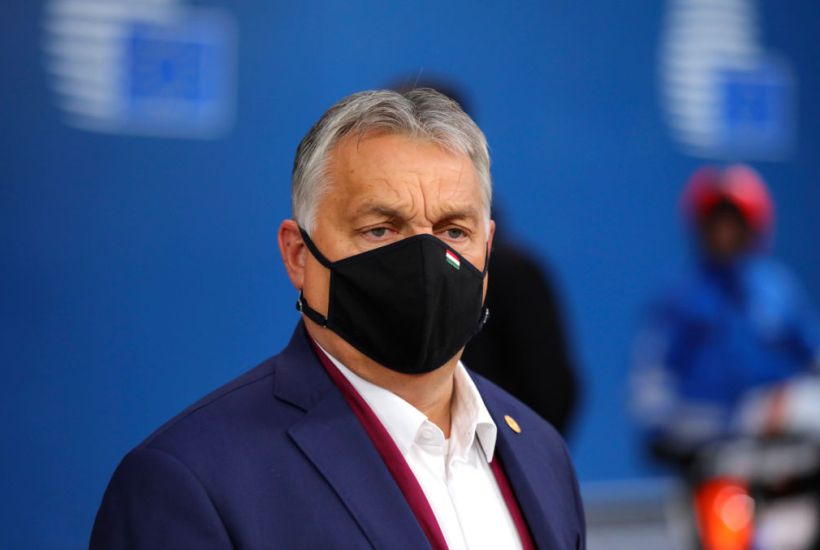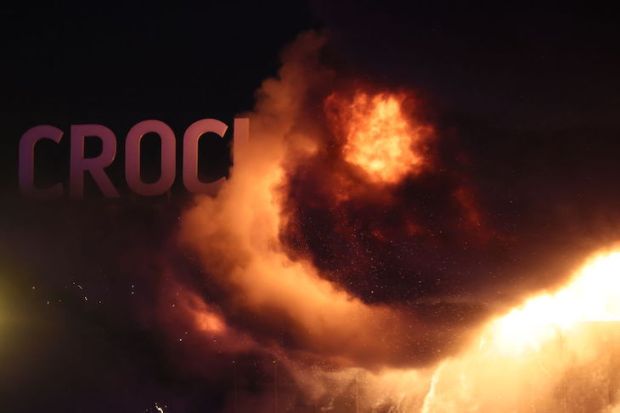In a fresh embarrassment for the EU in its vaccine rollout, breakaway member Hungary is now at the top of the bloc’s vaccine league table. The Czech Republic, Hungary’s Visegrád Four ally, languishes near the bottom of the list, having so far stuck with the EU’s centralised procurement programme. Meanwhile neighbouring Slovakia has now opted for the Hungarian approach, having taken delivery of its first shipment of Sputnik V vaccines last week.
Problems are certainly piling up for Brussels – and in Central and Eastern Europe, a region with a long history of EU rebellion, the idea of ‘going it alone’ is heightening tensions between pro- and anti-EU factions.
Slovakia’s prime minister Igor Matovič has portrayed his country’s acquisition of Sputnik V as a personal triumph, holding a special press conference at the airport to bask in the glory of its arrival. But rather than becoming a cause for national celebration, as Matovič seems to have hoped, the move has instigated fierce arguments about where the country’s international loyalties should lie.
Some Slovakian liberals are horrified at the role played by Hungary – the EU’s enfant terrible and a long-time ringleader of Visegrád Four rebellion against Brussels – in the deal. Siding with Hungarian leader Viktor Orbán on a contentious issue such as vaccine procurement is seen by these critics as playing a dangerous game.
Despite the country’s longstanding alliance with Hungary on migration – and although it has some of the highest levels of Euroscepticism in the EU – Slovakia treads a fine line in its relations with Budapest and Brussels. Matovič’s Ordinary People party is generally pro-EU, and the country refused to join the Hungarian-Polish partnership which threatened to torpedo the EU budget during the Rule of Law dispute last year.
Sections of the Slovakian media are now portraying the country’s departure from the centralised EU vaccine procurement as a step away from the EU and a move into the arms of Orbán. Rather than restoring national pride, Matovič is seen as having bartered away Slovakia’s diplomatic allegiances in exchange for vaccine doses. A controversial situation has been made even worse by Matovič’s suggestion that a longstanding dispute with Hungary over dual citizenship rights could be resolved, thanks to Orbán’s help in securing the Sputnik V deal.
Over in the Czech Republic, vaccine procurement is also proving divisive, thanks in large part to the intervention of president Miloš Zeman. Zeman’s political leanings towards the East, and away from the EU, are no secret. But Zeman has now made the country’s departure from the centralised EU procurement programme his personal mission. In doing so, he has provoked arguments about Czech loyalty to the EU’s vaccine programme and about the need for EMA approval to ensure the safety of Covid vaccines.
Zeman opened negotiations with Russia for deliveries of Sputnik V, and made overtures to China about the acquisition of the Sinopharm jab, behind the back of his own health minister Jan Blatný, who has insisted on EMA approval for all vaccines used in the country. A war of words ensued, but Zeman now seems to be winning the struggle: sources claim the country’s first batch of Sputnik V vaccines will arrive later this month.
Those in the Czech Republic concerned about the safety of newly-approved Covid vaccines see EMA approval as a necessary precaution. But for the country’s Eurosceptics, reliance on the EMA is symbolic of everything they believe is wrong with the country’s relations with Brussels.
The EU’s approval process for the Sputnik and Sinopharm jabs is proceeding painfully slowly – the EMA only started its evaluation of Sputnik V last Thursday, and has since repeated its call for member states to refrain from approving the jab independently. With Eurosceptics like Zeman confidently insisting that the Russian vaccine is safe, his opponents are in danger of becoming locked in an unhelpful and dangerous state of international dependency. This could become seriously problematic if the Hungarian and Slovak vaccine programmes prove to be successful in the long run.
The prospect of vaccine independence is testing geopolitical allegiances throughout the region, and in the Czech Republic and Slovakia the issue is raising tensions between pro- and anti-EU groups. With Slovakia having already taken the plunge by buying Sputnik V – and the Czech Republic looking likely to follow suit – the long-term impact on perceptions of the EU will depend on the success or failure of national vaccine programmes over the coming weeks and months.
Got something to add? Join the discussion and comment below.
Get 10 issues for just $10
Subscribe to The Spectator Australia today for the next 10 magazine issues, plus full online access, for just $10.




















Comments
Don't miss out
Join the conversation with other Spectator Australia readers. Subscribe to leave a comment.
SUBSCRIBEAlready a subscriber? Log in